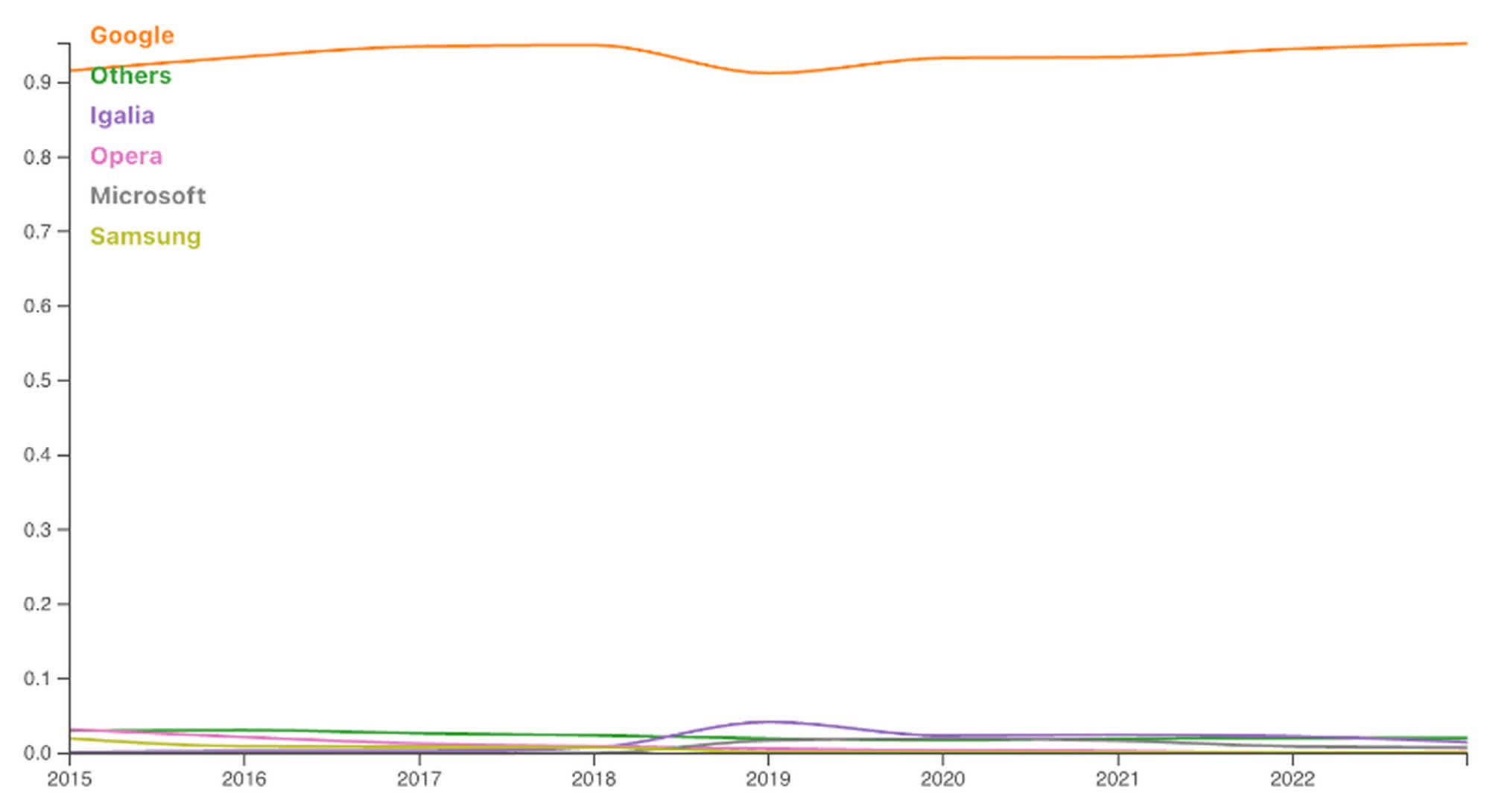Serving tech enthusiasts for over 25 years.
TechSpot means tech analysis and advice you can trust.
TL;DR: The Linux Foundation has announced the formation of a new group, the "Supporters of Chromium-Based Browsers," aimed at funding and advancing the development of browsers built on the open-source Chromium codebase. Founding members of the alliance include Google, Microsoft, Meta, and Opera.
The Linux Foundation said the new group will provide a "neutral space" for developers, software vendors, and the broader open-source community to better contribute to the Chromium ecosystem and collaborate on Chromium-based projects.
The foundation emphasized that existing Chromium projects will remain under their respective developers' control and will not be absorbed by the new alliance. Instead, the new group will operate under the Linux Foundation to "remove barriers to innovation, expand adoption, and ensure that projects within the Chromium ecosystem receive the resources they need to thrive."
Google explained that the Linux Foundation was selected to manage the alliance and its funding due to its proven track record of "open governance, prioritizing transparency, inclusivity, and community-driven development." The company also expressed its enthusiasm for the initiative, noting that it was "thrilled" to have garnered support from Meta, Microsoft, and Opera.

Google's contributions to Chromium
Google claimed to have contributed more than 100,000 commits to the Chromium codebase in 2024, representing approximately 94 percent of total contributions. The company assured the community that it has no plans to scale back its efforts and intends to continue investing in the Chromium project to drive further development. Additionally, Google called on its partners to "step up" and increase their own contributions to the project.
Microsoft and Opera also released statements praising the new initiative and reaffirming their commitment to the Chromium ecosystem. Microsoft stated that it would continue contributing to the Chromium codebase "to improve Edge and other Chromium-based browsers." Opera expressed optimism that the alliance would allow it "to take an even more active role in Chromium's development and future direction."
Many popular modern browsers, including Google Chrome, Microsoft Edge, Opera, Brave, and Vivaldi, are built on the open-source Chromium codebase. In contrast, the two most widely-used non-Chromium browsers are Mozilla Firefox and Apple's Safari. Firefox relies on Mozilla's proprietary Quantum/Gecko engine, while Safari is powered by Apple's WebKit.
The implications of the new alliance for non-Chromium browsers remain unclear. For browsers such as Firefox, which lack the backing of tech giants like Apple, the alliance could pose significant challenges. If the Supporters of Chromium-Based Browsers initiative enables Chromium-based browsers to capture even more market share, Mozilla may face increasing pressure. This is particularly concerning given Mozilla's heavy reliance on funding from Google to sustain the development of its open-source browser.









 English (US) ·
English (US) ·